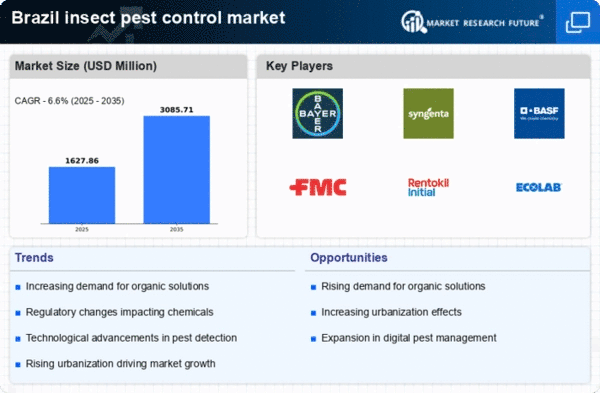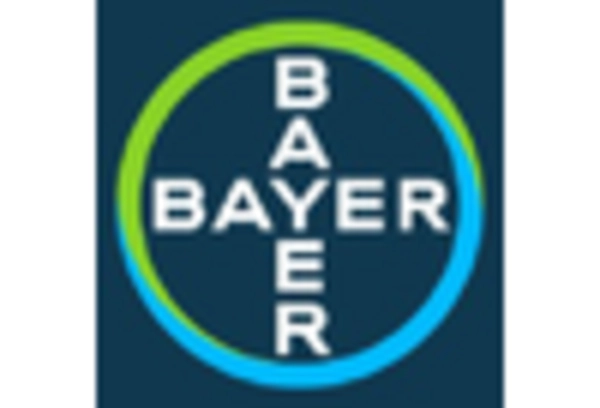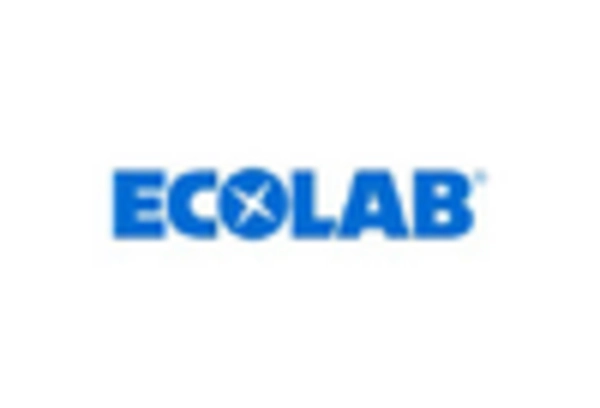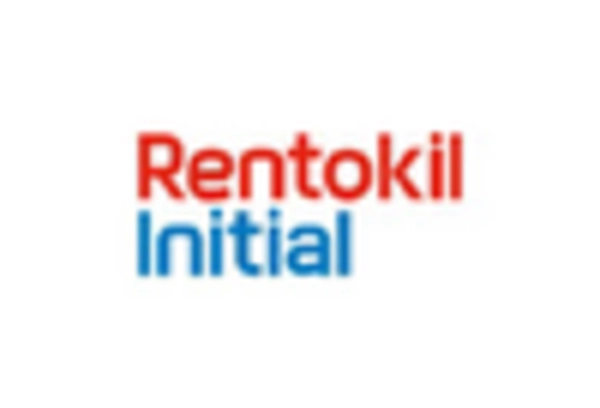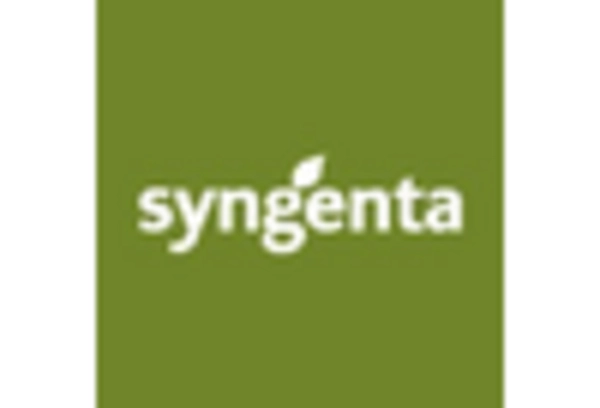Climate Change Impact
Climate change is significantly influencing the insect pest-control market in Brazil. Rising temperatures and altered precipitation patterns create favorable conditions for pest proliferation. For instance, warmer climates can extend the breeding seasons of pests, leading to increased populations. In Brazil, studies suggest that certain pest species may expand their range due to climate shifts, necessitating more comprehensive pest management strategies. The insect pest-control market must adapt to these changes by developing innovative solutions that address the evolving pest landscape. This adaptation could involve the introduction of new products and services tailored to the specific challenges posed by climate change.
Agricultural Expansion
The expansion of agricultural activities in Brazil is a significant driver for the insect pest-control market. As the country continues to be a leading exporter of agricultural products, the need for effective pest management in farming practices becomes critical. Crop losses due to pest infestations can severely impact yields and profitability. In 2025, Brazil's agricultural sector is projected to grow by approximately 3%, which may lead to increased investments in pest control solutions. Farmers are likely to seek advanced pest management strategies to protect their crops, thereby driving demand for innovative products and services within the insect pest-control market.
Increasing Urbanization
The rapid urbanization in Brazil is driving the demand for the insect pest-control market. As more people migrate to urban areas, the prevalence of pests such as mosquitoes, cockroaches, and rodents increases. Urban environments provide ideal breeding grounds for these pests, leading to heightened health risks and property damage. Consequently, the need for effective pest control solutions becomes paramount. In 2025, urban areas in Brazil are expected to house over 85% of the population, which could potentially escalate the demand for pest control services. This trend indicates a growing market for pest control companies, as urban residents seek reliable solutions to manage pest infestations.
Health Awareness and Disease Prevention
Growing health awareness among the Brazilian population is a crucial driver for the insect pest-control market. With increasing concerns about vector-borne diseases such as dengue fever and Zika virus, there is a heightened demand for effective pest control measures. Public health campaigns and educational initiatives have raised awareness about the risks associated with insect infestations, prompting individuals and businesses to invest in pest management solutions. In 2025, the Brazilian government is likely to allocate more resources to combat these diseases, further stimulating the insect pest-control market. This trend suggests a potential increase in market growth as consumers prioritize health and safety.
Technological Advancements in Pest Control
Technological advancements are reshaping the insect pest-control market in Brazil. Innovations such as smart traps, drones for monitoring pest populations, and biopesticides are becoming increasingly prevalent. These technologies enhance the efficiency and effectiveness of pest management strategies, appealing to both residential and commercial sectors. In 2025, the market is expected to witness a surge in the adoption of these advanced solutions, as consumers seek more sustainable and effective pest control options. The integration of technology into pest management practices not only improves outcomes but also aligns with the growing trend towards environmentally friendly solutions in the insect pest-control market.


